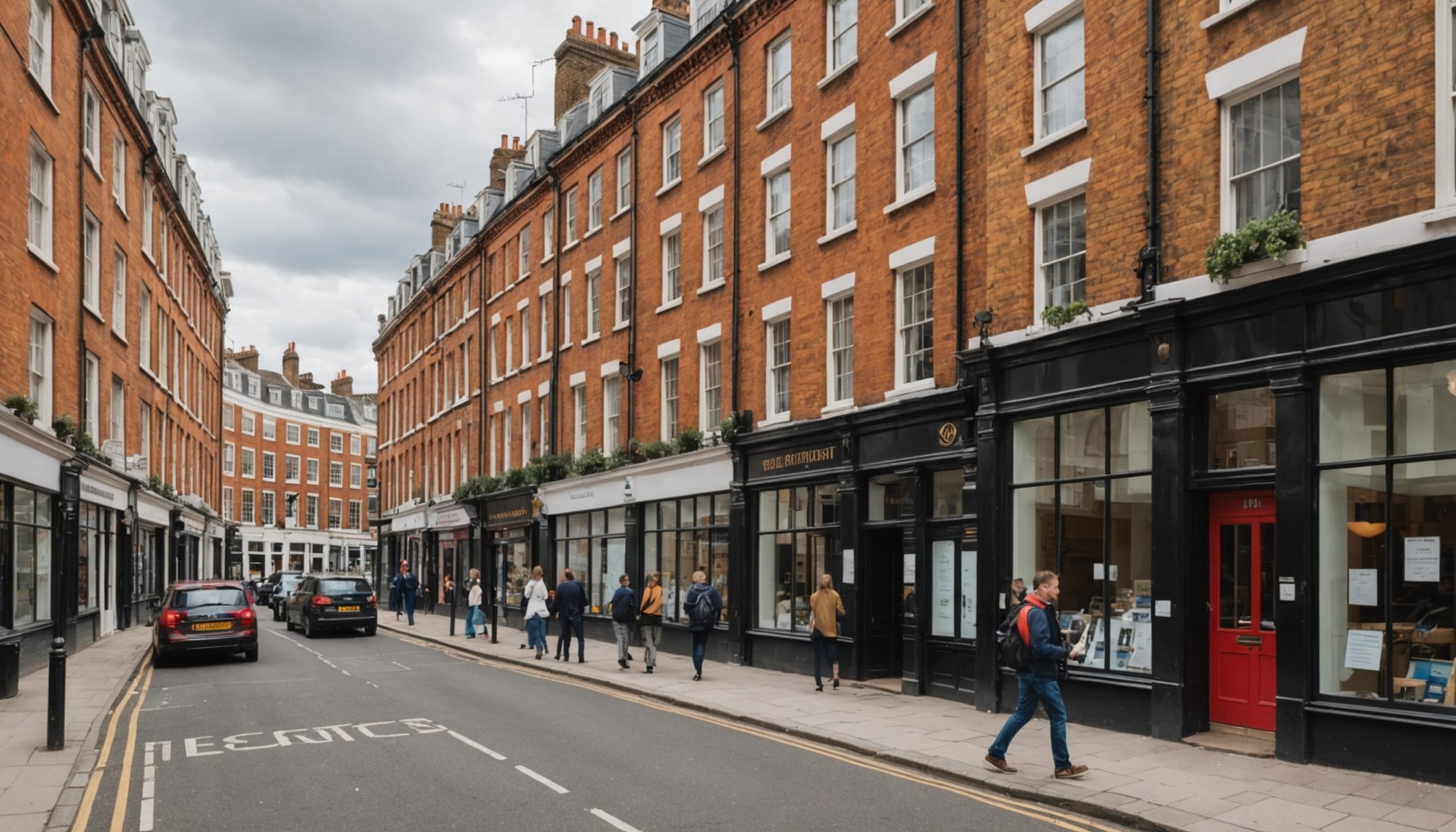Overview of Local Permits Required for Relocation
When planning a Central London relocation, understanding the intricacies of local permits is crucial. One must navigate through specific permits required, including parking permits for moving vans and temporary street occupation permits.
Key Permits for New Arrivals
Newcomers need to secure a few essential permits. A parking permit ensures your moving vehicle can park legally, avoiding penalties. Temporary street occupation permits may be necessary if your relocation involves occupying public space such as pavements for unloading.
A lire en complément : Essential Factors to Consider for Choosing Reliable Moving Insurance in the UK
Role of Local Government Structures
In Central London, local government bodies like borough councils oversee the issuance of these permits. They are responsible for enforcing regulations and ensuring public areas are used appropriately. An understanding of which local government structure is responsible is vital, as each borough might have different rules and procedures.
Navigating Local Regulations
Comprehending local regulations is key to a trouble-free relocation. Regulations can vary significantly depending on the borough, and failure to adhere can lead to fines or delays. It’s advisable to research regulations well in advance to avoid potential setbacks. This preparation will help ensure a smooth transition to your new home, minimizing the stress often associated with moving.
Lire également : Mastering Your House Move in London: The Ultimate Timeline for a Seamless Transition
Types of Essential Local Permits
Relocating to a new area involves navigating a web of local permits to ensure compliance with regional laws. Understanding these is pivotal for a smooth transition.
Planning Permission
Planning permission is a critical legal requirement for anyone looking to extend or alter property. Relocators often need it when the intended changes might affect the local environment or community. For instance, you might need this permission if you plan to build a new structure or make significant alterations to your premises. The process involves submitting detailed plans to the local authority, who will consider factors like environmental impact and community feedback. Patience is essential, as approval can take several weeks.
Building Regulations Approval
Building regulations ensure that safety, structural integrity, and minimum standards are met. Obtaining this approval involves inspections at various stages of construction or renovation. It’s crucial to adhere to local building codes to avoid hefty penalties or the need for costly alterations. Costs include not only application fees but also the potential expenses of meeting these standards.
Business Permits (if applicable)
For new residents looking to establish a business, acquiring the right business permits is essential. These ensure legal operation within the locality. Application protocols typically require detailed business plans and understanding local taxation and licensing requirements. Being informed about these requisites smooths the process, saving time and resources.
Application Process for Local Permits
Navigating the permit application process can be daunting, but understanding the steps can make it smoother. Each permit type has a distinct procedure, and knowing these can increase your chances of success.
Step-by-Step Breakdown
-
Identify Permit Type: Start by determining the specific permit you need. This could range from building permits to event licenses.
-
Gather Required Documents: Essential documents often include site plans, project proposals, and personal identification. Check your local authority’s checklist for complete requirements.
-
Submit Application: Complete and submit the required forms. Be sure to double-check for accuracy and completeness to avoid delays.
-
Application Review: Authorities evaluate your application for compliance with local regulations. Corrections or additional information might be requested.
-
Approval or Rejection: Once reviewed, you’ll receive notice of approval or feedback on any issues that need attention.
Average Timelines
Permitting timelines vary by region and complexity. Typically, expect:
- Minor permits: 1-2 weeks
- Major permits: 3-6 weeks
Tips for Success
- Stay Informed: Keep abreast of local regulations.
- Engage Early: Consider consulting experts or local offices early in the process.
- Be Patient and Persistent: Follow up on your application status regularly but politely.
Costs Involved in Obtaining Permits
When relocating, permit costs often become a significant aspect of the overall budget. While the specific permit fees can vary widely depending on the location and nature of your relocation, they frequently include charges for zoning variances, building permits, and environmental assessments. It’s important to meticulously plan these expenses to avoid unexpected financial burdens.
In addition to standard permit fees, there are often supplementary costs to consider. These might include retaining professionals to navigate the regulations, such as architects or engineers, which can further inflate your relocation budget. Don’t forget to allocate funds for legal advice if needed, as navigating the bureaucratic landscape can frequently involve complex legal requirements.
Some regions offer financial assistance or discounts to alleviate permit expenses, especially for eco-friendly projects or community development initiatives. Exploring these options can significantly impact your budgeting for relocation. Always check with local authorities or consult online resources to keep abreast of available incentives.
By comprehensively understanding and preparing for these potential costs, you can effectively budget for your move, making sure these expenditures do not disrupt your financial plans. Prior planning ensures not only compliance but also a smoother and economically sound relocation process.
Resources for Navigating Local Permits
When relocating, understanding how to access local government resources efficiently is crucial. Here is a list of official websites where you can find valuable information on permits:
- Most city or town councils have dedicated portals for permit inquiries.
- County administration websites often provide a more comprehensive look at regional requirements.
- State government platforms typically encapsulate broader regulations that might impact your relocation process.
Engaging the right contact points for assistance can significantly ease your permit application journey. Begin by reaching out to:
- Local permit offices, which usually have specific departments for housing, construction, and business permits.
- Public information officers or permit coordinators, who are adept at providing detailed information and guidance.
Additionally, tapping into local support services or community organizations can be immensely helpful. These entities often provide:
- Workshops and informational sessions on navigating bureaucratic procedures.
- Relocation support tailored to individual needs, bridging the gap between personal circumstances and governmental regulations.
- Experienced consultants or volunteers offering permit assistance tailored to both businesses and individuals moving into the area.
Utilizing these resources ensures a smoother transition and helps avoid unnecessary delays in legal and structural adjustments.
Common Challenges and Solutions
Navigating the permit application process can be daunting due to various obstacles. One frequent issue is the complexity of paperwork, which often includes ambiguous requirements that lead to delays. To counter challenges in the permitting process, it’s crucial to meticulously review all documents and seek clarification from regulatory bodies if needed. Problem-solving tips include maintaining clear communication with local authorities and staying updated with the latest regulations to avoid unforeseen complications.
Relocation obstacles can also pose significant challenges. Factors such as zoning laws and environmental regulations can impede progress. A proactive approach involves researching these areas in advance and consulting with experts to ensure compliance. Partnering with professionals knowledgeable about local guidelines can smooth this transition, minimising risks associated with violations.
When facing complex problems, various resources for further assistance are available. Online platforms, governmental portals, and local business networks often offer vital information and support for navigating these hurdles. Utilizing professional services or legal counsel is encouraged for more intricate issues. By leveraging these resources effectively, you can better overcome the obstacles inherent in the permitting and relocation processes, paving the way for a smoother operational journey.
Tips for a Smooth Relocation Experience
Relocating to a vibrant city like Central London can be exhilarating yet daunting. To make your relocation seamless, effective planning is essential. Start by organizing a clear timeline. Break down tasks, setting specific dates for packing, hiring movers, and notifying essential services of your move. Early action can prevent last-minute stress and ensure everything falls into place.
Managing logistics entails more than moving boxes. Arranging transportation for a hassle-free day is crucial. Select a reliable moving service well in advance, catering specifically to Central London. Consider accessibility concerns, like narrow streets, which often require pre-arrangement.
Another key tip involves embracing the community. With Central London’s extensive cultural diversity, engaging with local networks can aid in settling faster. Attend local events or join community groups to build connections and receive valuable relocation advice. Understanding the community culture can enhance your new life experience in this bustling metropolis.
Relocation tips for adapting also suggest immersing yourself in your surroundings to feel at home in Central London. Explore local amenities, favourite dining spots, and transport links for an enriched life post-relocation. Proactively seeking familiarity will foster a comfortable transition, making this cosmopolitan city your home.











